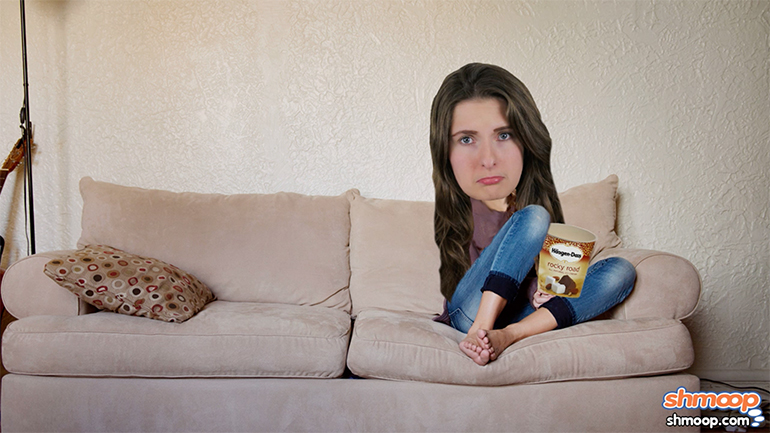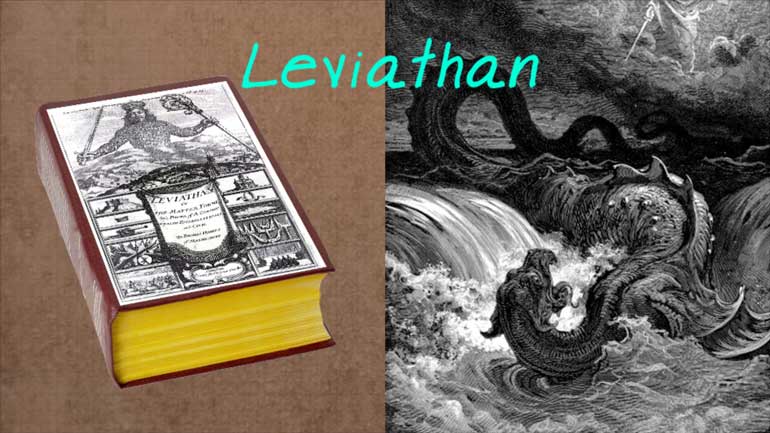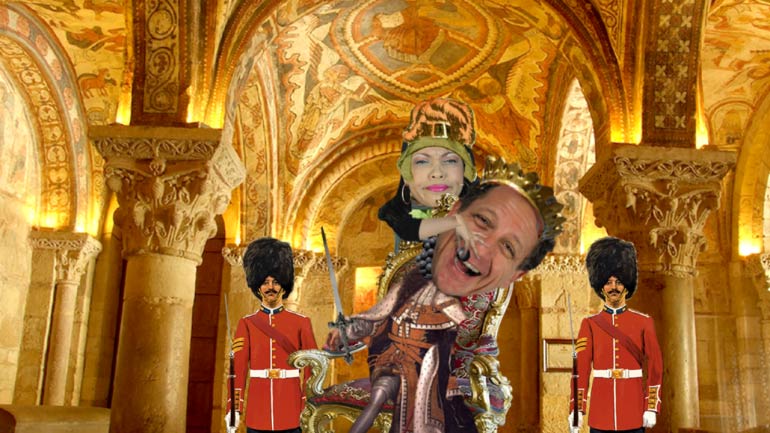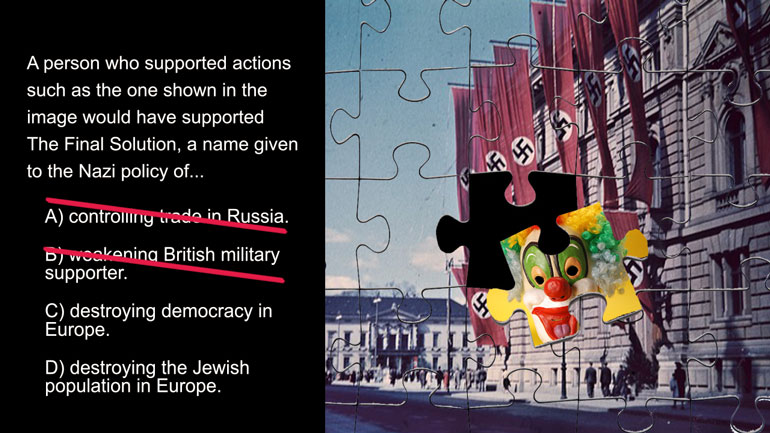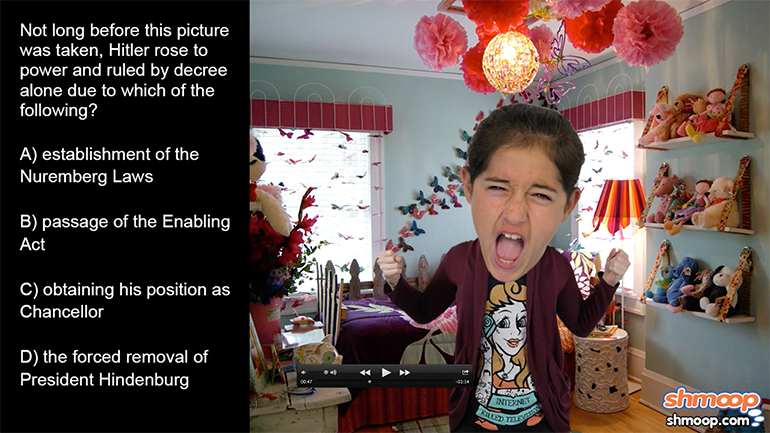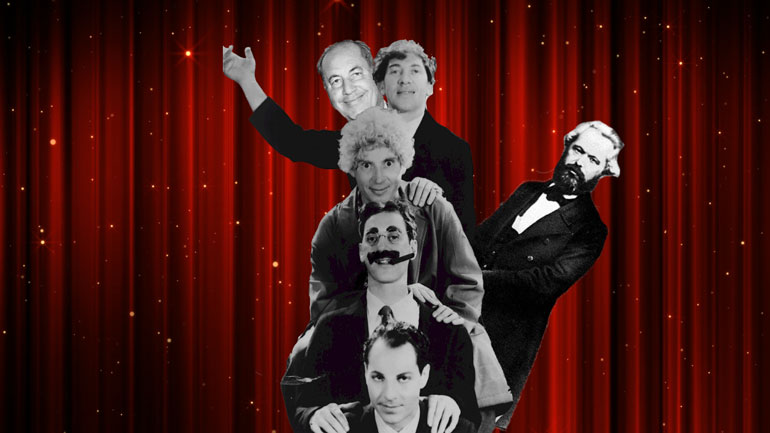ShmoopTube
Where Monty Python meets your 10th grade teacher.
Search Thousands of Shmoop Videos
Contextualization Videos 5 videos
AP European History 2.2 Period 1: 1450-1648. The man portrayed in the image was previously motivated to tack the Ninety-five Theses on the doo...
AP European History 1.2 Period 2: 1648-1815. Which best describes the state of nature as highlighted in Leviathan by Thomas Hobbes?
We know how much you hate rules of any kind, but it's time to consider what effect the absolute rule of European monarchs had on their society. The...
AP European History 2.2 Period 1: 1450-1648 61 Views
Share It!
Description:
AP European History 2.2 Period 1: 1450-1648. The man portrayed in the image was previously motivated to tack the Ninety-five Theses on the door of the castle church of Wittenberg because of which of the following causes?
Transcript
- 00:00
Thank you here's Your smoke du jour brought to you
- 00:05
by indulgences Like when you eat an entire pint of
- 00:09
rocky road ice cream in a single sitting Not that
- 00:12
we've ever done that It's a hypothetical Take a look
- 00:16
at this image in tallinn Von warner Well here's today's
Full Transcript
- 00:20
question The man portrayed in the image above was previously
- 00:23
motivated to attack the ninety five thesis on the door
- 00:27
of the castle church of wittenberg Because of which of
- 00:30
the following causes and hear your potential answers Sacrament expenses
- 00:35
burial All right well luther had ninety five problems but
- 00:39
a sacrament ain't one of them Sorry we couldn't exist
- 00:43
In actuality he only had one real problem Hence the
- 00:46
question Okay so let's figure out what uh which one
- 00:48
It wass with luther motivated by a requirement of sacrament
- 00:52
for penance That is a private confession to a priest
- 00:55
in exchange for absolution Well no he was totally fine
- 00:59
with that one Nor did he take particular issue with
- 01:01
expensive burial fees or even the selling of church offices
- 01:05
both of which he chalked up to being examples of
- 01:07
the way in which the church had become a financial
- 01:09
institution point being he understood the church had to make
- 01:12
money so those two weren't breaking his point That eliminates
- 01:15
be indeed That means that luther's breaking point was c
- 01:18
the selling of indulgences which effectively allowed people to buy
- 01:23
their way into heaven through forgiveness not cool Ever hear
- 01:26
of paying for your sins that's kind of the idea
- 01:29
And while the truth promise that buying indulgences would pardon
- 01:32
people of their sins revenue was in fact being used
- 01:35
to pay the church's deads to bankers and rome for
- 01:37
the building of new churches as all great angsty artists
- 01:40
do luther used his unhappiness as fuel for his writing
- 01:44
soc is the correct answer Ninety five pieces on the
- 01:47
castle door Ninety five pieces on the door Take one
- 01:51
down starting new religion ninety five pieces on the castle 00:01:54.139 --> [endTime] door
Related Videos
AP European History Period 1: 1450-1648 Drill 2, Problem 1. As a result of the meeting in the image, which of the following occurred?
AP European History Period 3: 1815-1914 Drill 2, Period 1, Les Demoiselles d'Avignon represented the beginning of which of the following art m...
AP European History Period 3: 1815-1914 Drill 2, Problem 4. Paintings like the one depicted above were a direct reflection of what?
AP European History 1.2 Period 4: 1914-Present Not long before this picture was taken, Hitler rose to power and ruled by decree alone due to which...
AP European History 1.4 Period 3: 1815-1914. As evidenced through the passage above, Karl Marx was a passionate leader and is considered the father...
